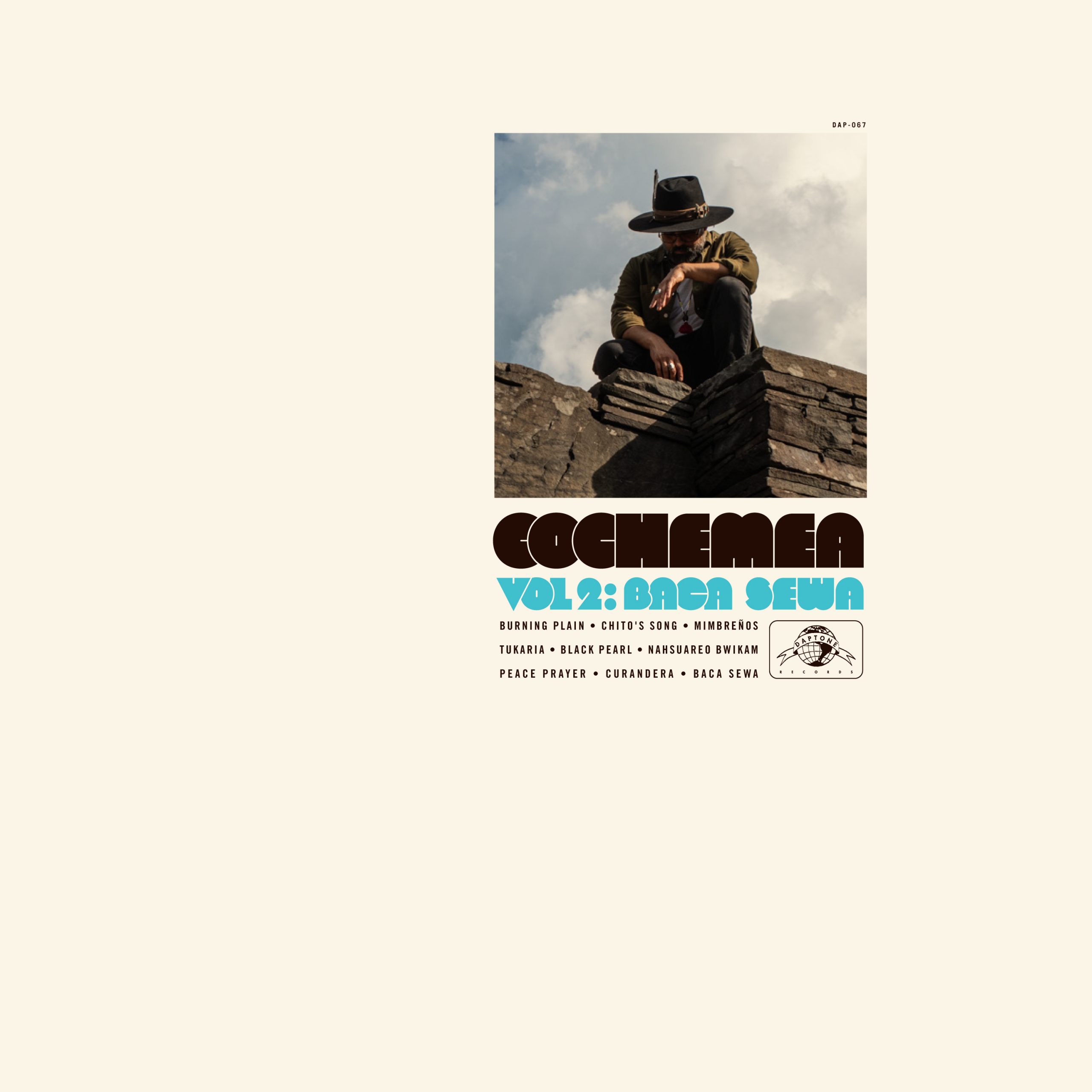The Breakdown
What is roots music? Well Cochemea Gastelum’s earthy new album, ‘Vol II: Baca Sewa’ out via Daptone from 16th July, would pretty much nail it if you’re searching for definitives. Roots has nothing to do with retro, it’s not about seeking to sound like the past, it’s about connection and inspiration, exploring a personal heritage through music making. That’s where the Dap-Kings saxophonist and composer is coming from on his third solo offering, mining deeper into his own history after his 2019 debut, the head turning ‘All My Relations’, began his own restorative journey.
That’s not to say ‘Vol II: Baca Sewa’ is overly sombre or solemn, weighed down by its own purpose or emotional baggage. Cochemea’s pull towards his indigenous cultural soul, beyond his native San Diego to his Mescalero Apache bloodlines, is sound-tracked by a natural-high rhythmic energy and radiantly hot sax. Music very much for the head, hands and feet then…
Opener ‘Burning Plain’ achieves that tricky combination with a five minute tapestry of atmosphere and momentum. Cast off to a gentle exchange between hand drum, block flute and vocal chant, Cochemea picks up the melody in a respectful trade off with a sumptuous percussive shimmy. As he leans into a solo his expressiveness as a player hits you, from aching climbs to husky lows, pristine clarity to breathless rasps, it’s a sound at home with both snakey eastern flourishes and ‘get down’ physicality.
But there’s much more to ‘Vol II’ than Cochemea’s instrumental agility. His 7 piece band of New York and Daptone buddies is enticingly percussion heavy and rhythm literate, an ensemble that play with a canny sensitivity to the soundscape. On ‘Nahsuareo Bwikam’ they slinkily shift from steady beat to timbale face-off to subterranean bassline, without a judder. On ‘Tukaria’ they lay down exotic beats full of ceremonial mystery then ease into a carnivalesque samba sway for Cochemea to colour with a lean sax song.
It’s that discipline and economy, the reduction of clutter or unnecessary frills that is the foundation of the album’s impact. The 60’s tinged Brazil pop swinger ‘Mimbrenas’ thrives on such commitment to song structure with an ear-worm hook camped either side of a stomping Afro – Cuban middle eight. Maybe at times it feels like the music should get more disorganised and stretch out. On ‘Curandera’ as Cochemea’s spiralling solo cuts loose the swift return to the recurrent vocal line seems a little premature. Still re-imagining ‘Vol II: Baca Sewa’ as something more sprawling or abstract would have lost its clarity and rhythmic heft-something this funky needs to be tight.
Elsewhere on the record Cochemea branches off in other directions but always with an eye on the story he has set out to tell. A sultry, mature rhumba steers a calm wandering tribute to his uncle in ‘Chito’s song’ where the chirpiness of his sax captures the warmth of remembering. On the sonorous ‘Black Pearl’ sprightly flute and vibes skip through the melody, marking a take on more traditional early music in memory of his great grandfather’s generation.
That process of discovery and recognition of his complex family history is at the heart of this music. The album’s title ‘Baca Sewa’ references Cochemea’s original family name before the Spanish colonisation of the Pacific coast and fittingly the record closes with a strident chant featuring the collective vocals and drumming of several generations of his family members. The track brings Cochemea’s record full circle and gives it a deeper resonance. Adding that to the crisp funkiness and soulful jazz tones you expect from Daptone and the result is ‘Vol II: Baca Sewa’ – an album with the power to rejuvenate.














No Comment